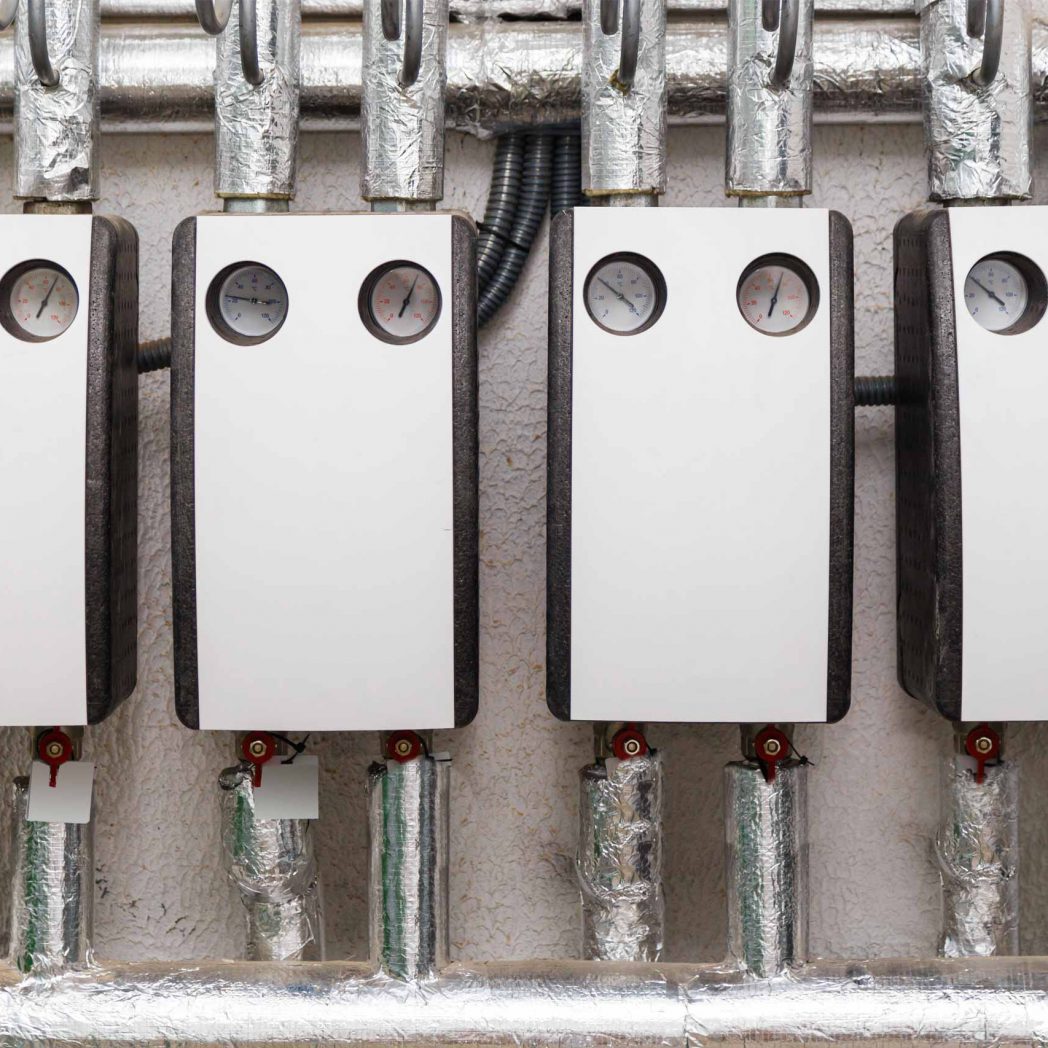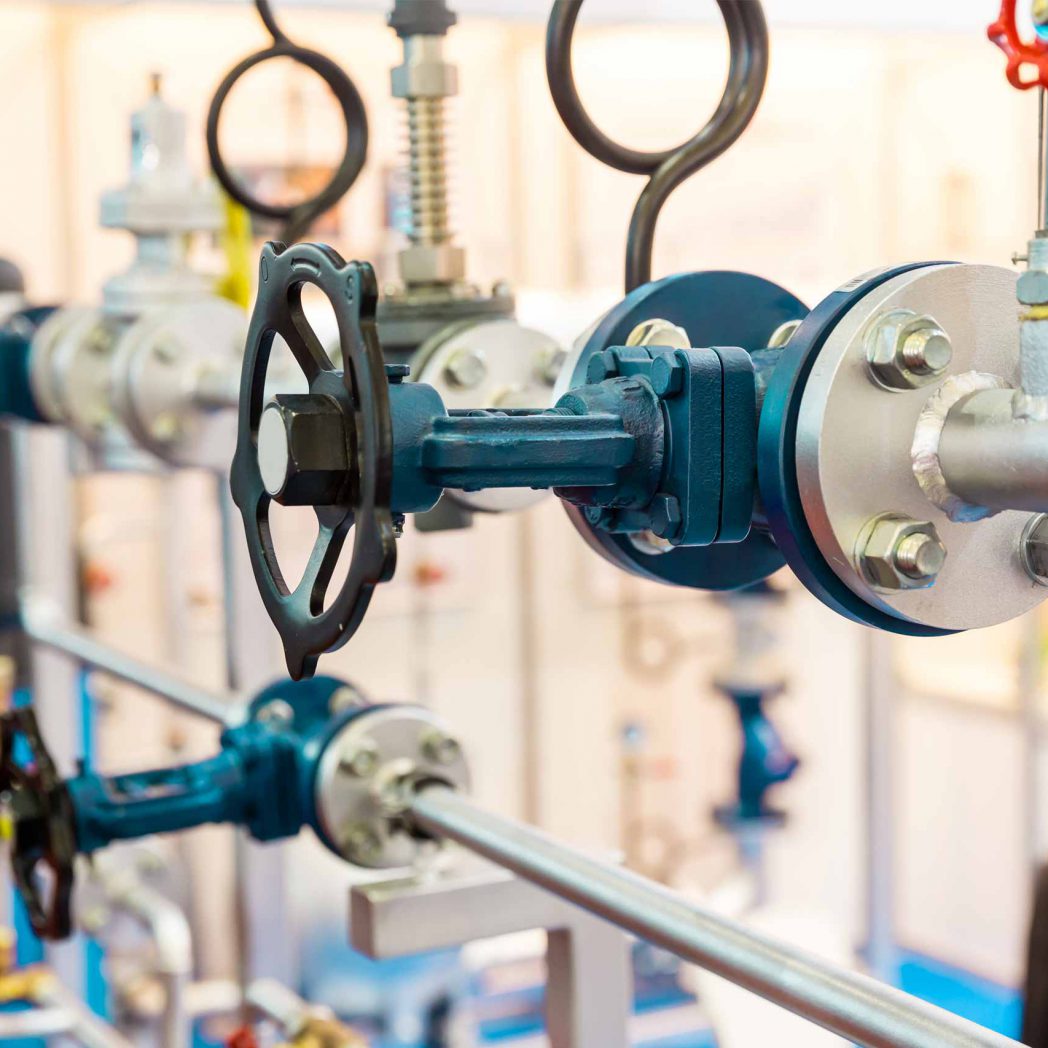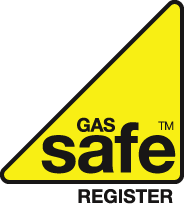What is an LPG boiler system?
LPG stands for Liquefied Petroleum Gas. It is a gaseous fuel supply sold in bottles or delivered by tanker. Sometimes you will see it called GPL – this is just a European version of the same name (“Gas de Petróleo Licuado”). It principally contains propane and butane.
LPG gas flows under greater pressure than mains gas, so the jets inside the boiler can be smaller. This helps efficiency and keeps down the running costs. Because gas burns more completely than oil and other types of fuel, there are fewer side products to slowly clog the system or pollute the environment. LPG produces about 20% less carbon dioxide per kilowatt-hour than heating oil and has the lowest carbon emissions of any fossil fuel available to rural households.
LPG also gives you a far wider choice of boilers, because many ordinary mains gas boilers can be converted to burn LPG. They also tend to be smaller in size – giving you have more flexibility as to where to install them. For those who own a property that is off the grid, or perhaps considering a boiler for a caravan home or boat, LPG could be your best solution.
Tanker delivered LPG can be stored in tanks that hold between one and two thousand litres. They can be sunk underground if you prefer them completely out of sight. Whereas theft of heating oil and other fuel supplies is not unknown in some rural areas, theft from a tank of LPG is very unlikely.
If you want to buy in smaller quantities or require something more portable, you can also choose to have gas delivered in exchangeable bottles.
Even if you already use LPG, Invictus Mechanical can help you make the switch to a modern condenser type boiler can give you considerable improvements in fuel efficiency and reliability.
Planning your LPG installation
At Invictus Mechanical, we have years of experience providing comprehensive LPG solutions for homeowners, business owners, agents and landlords. We can advise you about all your LPG requirements before any development work commences.
There are several important safety rules that will inform the installation and LPG cylinders have to be located outside when they are part of a permanent installation. Your boiler must be at least 2 metres from any untrapped gullies, cellar openings or storm drains. It must also be a minimum of a metre from any other combustible material and from all doors, air vents and windows (if they can be opened).

Our LPG boiler services
Our experienced engineers can install, check or replace any LPG combination boiler, in addition to connected appliances including cookers, central heating systems, or gas change over valves (for connecting multiple LPG bottles).
We can also relocate your boiler, storage tank, or gas bottles, or run supply lines underground if that’s more convenient. We will also advise you about equipping your system with thermostats and heating controls.
Our LPG services include:
- Replacing or installing gas change over valves (allowing the use of multiple LPG bottles)
- Installation of LPG combination boilers and cookers
- Full gas central heating systems
- Relocating gas bottles and supplies
- Retrospective certification
- Commissioning static home units
- Running underground gas supplies terminating in a house end kit or gas valve
- Converting cookers from natural gas to LPG
- Servicing LPG appliances
- Searching for and rectifying any escape of gas
- Performing gas safety checks for landlords and letting agents

And of course, we also provide regular service checks, statutory gas safety checks and provide householders and developers with certification for building regulations purposes.
Our services are available throughout the south-west, from Exeter to Birmingham and encompassing Bristol, Bath, Stroud, Cirencester, Gloucester, Swindon, Chippenham, and Trowbridge.
Drop us a line on 0117 322 6150 or email using our simple contact form and we’ll be in touch as soon as we can.
“Thanks to Invictus we now have an efficient, shiny new boiler system. The heating output has increased, and we are also now able to operate one of the pair of new boilers for economical running when it’s not really cold.”






